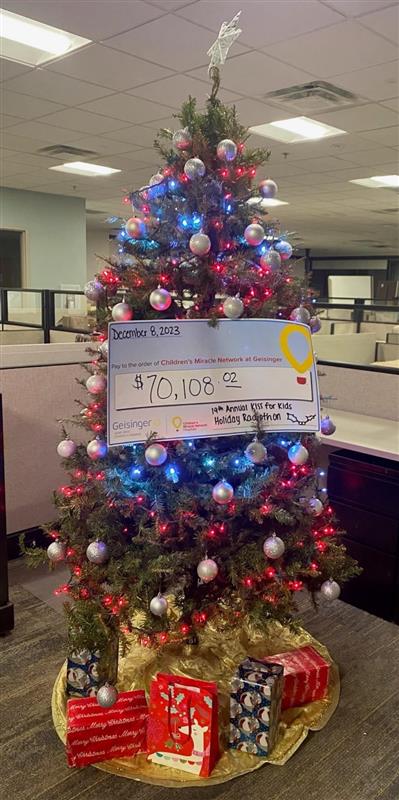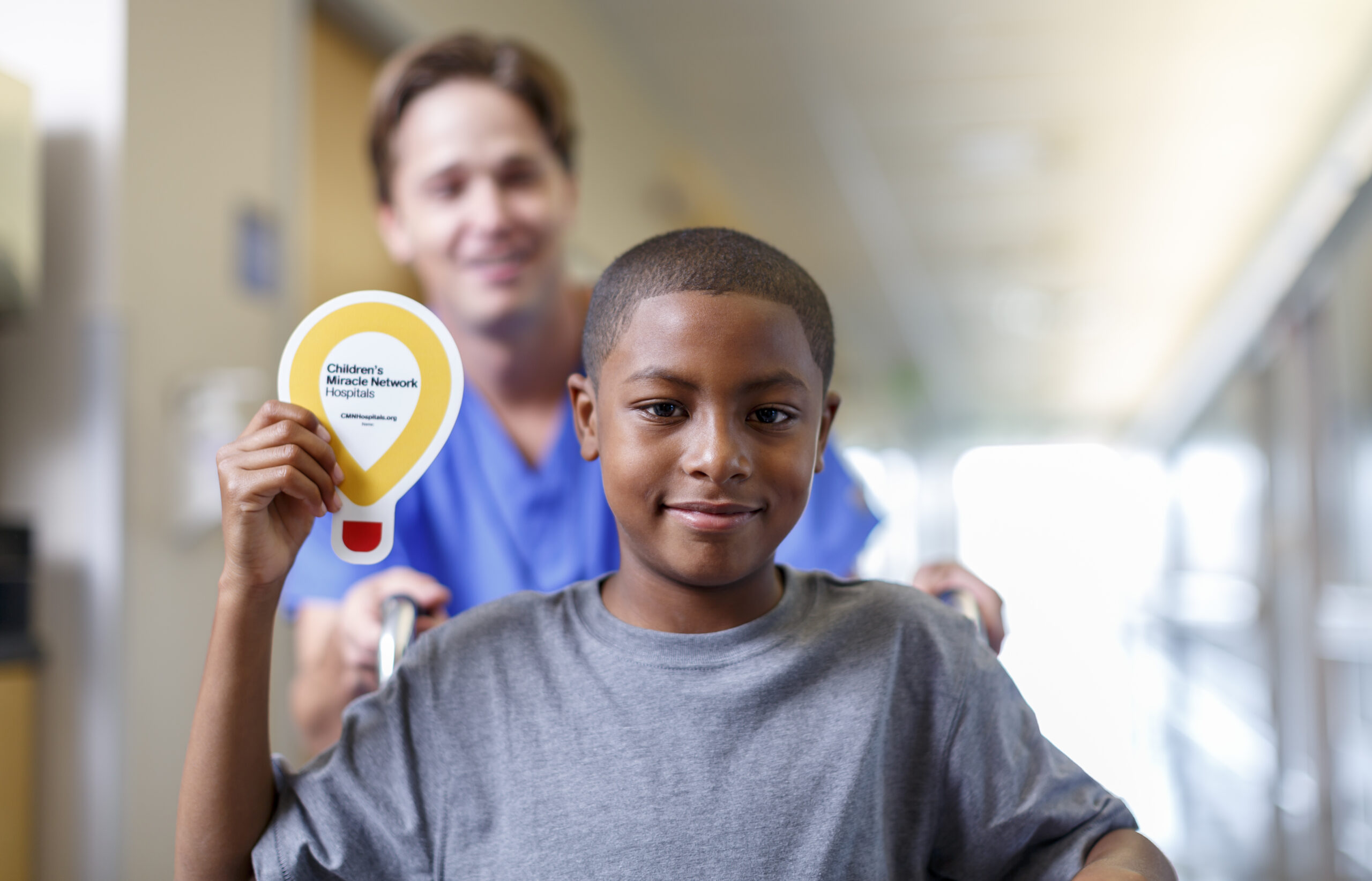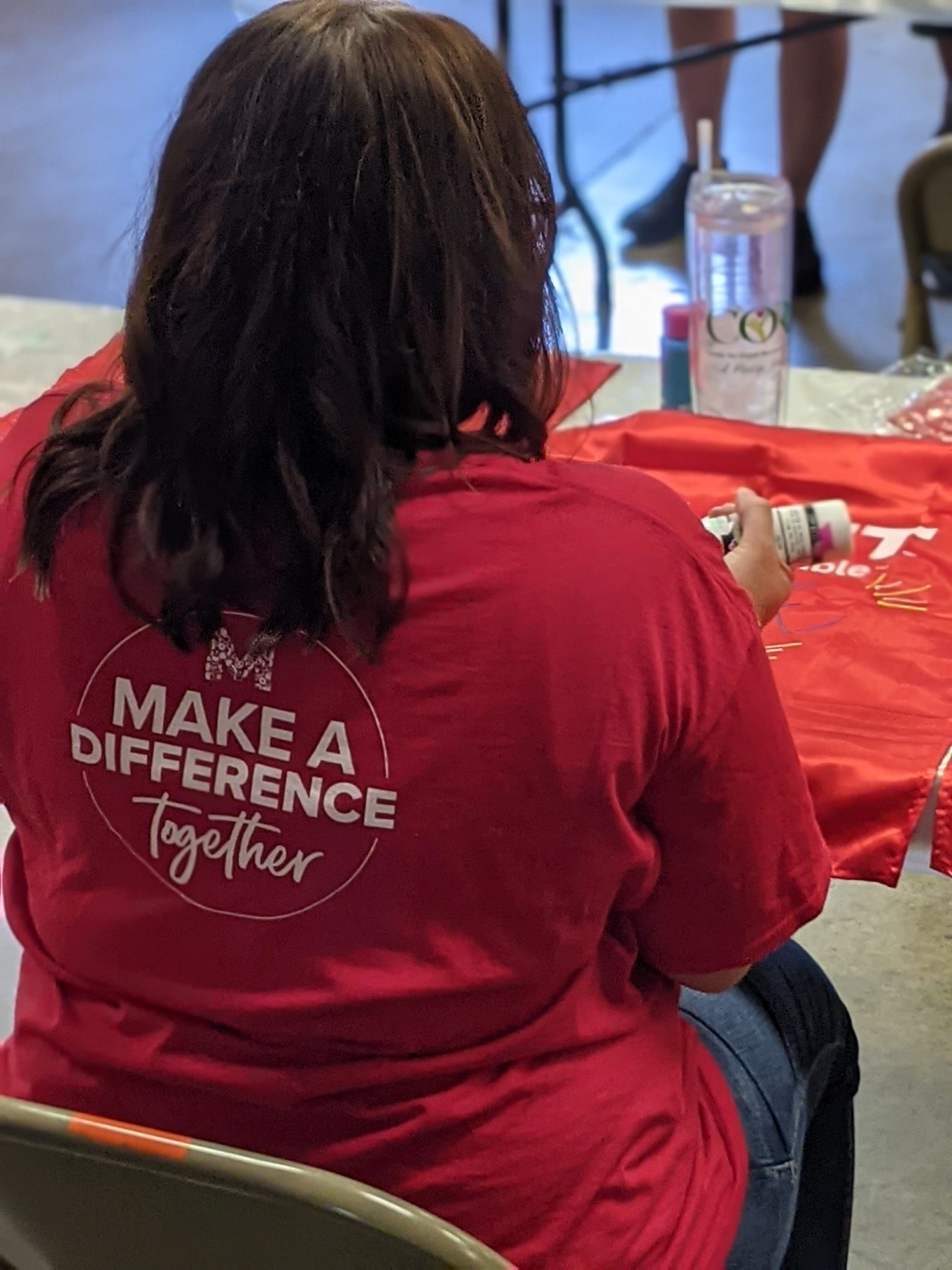2015 Miracle Kid Caley Halerz

Four-year-old Caley Halerz of Altoona is not only a Miracle Kid, she is a Christmas Miracle.
In December 2011, Denielle Halerz was 6 months pregnant and was feeling terrible. She thought she was in a rough part of her pregnancy.
“I thought I had heartburn. I felt that way for weeks,” she said. “I was with my mother, who is a nurse, and she said I looked terrible. She made me promise to call the doctor the next day to get checked out.”
Denielle’s doctor ran some tests and sent her to the local hospital for IV fluids thinking she may be dehydrated. While at the hospital, Denielle’s blood pressure became dangerously high and her platelets were extremely low. Her doctor explained that Denielle may have HELLP Syndrome and that her baby would need to be delivered within 48 hours. The doctor said that because Caley was only 24 weeks gestation, she would only have a 50 percent chance of survival.
“I took an ambulance ride to Geisinger Medical Center in Danville with my husband, Mark, driving behind,” Denielle said. “We got there around 8 p.m. on Dec. 23. I begged them to just let me go home to be with my son, Ty. He was 2-years-old and I just wanted to get through Christmas. They told me, that they didn’t think I understood the severity of the situation.”
HELLP stands for Hypertension, Elevated Liver enzymes and Low Platelets and is a variant of preeclampsia, but a much worse form, according to Lauren Johnson, MD, neonatologist at Geisinger Janet Weis Children’s Hospital.
“Pretty much you know if a mom has HELLP, the only way to make them better is to get the baby delivered,” Dr. Johnson said. “You may worry that the baby is too premature, but the problem is the baby gets much worse as the mother gets sicker. Nobody knows who gets HELLP or why, but it is just one of those conditions that it is just bad for the baby and mom and you need to get her delivered.”
Geisinger doctors gave Denielle an injection of steroids to help Caley’s lungs develop and they hoped to wait 48 hours to allow it to work. After only 36 hours, Denielle’s blood pressure escalated and doctors raced to have Caley delivered.
She was born at 10:10 a.m. Christmas day and weighed only 1 pound, 2 ounces. She was able to breathe on her own at first, but soon began to struggle and was placed on a ventilator. Caley would spend the next three months in the Neonatal Intensive Care Unit (NICU) fighting to live.
Caley had a bad case of apnea of prematurity, which is where she would stop breathing and her blood oxygen levels would fall.
“Caley needed a lot of caffeine,” Dr. Johnson said. “For preemies, caffeine acts on the brain as a central stimulant to remind them to breath. Many of these children don’t have the pathways developed to tell them to breath. When they involuntarily hold their breath, the heart rate slows and oxygen saturation levels become low, they may not start again unless something stimulates them to breath. ”
Caley was doing better with the stimulation and occasional help to breath but in early January she developed an E. coli infection in her bloodstream that developed from a bug she had in her intestinal tract.
“Infections are something we have done a dramatic job of reducing in the NICU, but when they happen, they are one of those things that can kind of come out of the blue,” Dr. Johnson said. “The fact that we couldn’t get her on regular feeds, that she had a central catheter and her overall immaturity, all contributed to her having an extremely high risk of developing infection. She was getting worse and she ended up back on the ventilator. It was a huge setback.”
After the delivery Denielle was doing well physically but her mental state was not good and Caley’s infection did not help. She felt a tremendous amount of guilt for Caley’s premature birth.
“I went in the NICU every day thinking that would be the day she was going to die. I didn’t believe she could make it,” Denielle said. “I didn’t want her to just survive; I wanted her to be able to live a life.”
Denielle was dealing with a lot of guilt and became angry. She was very quiet and didn’t want to talk to anybody. Several of the NICU doctors took the time to coach her and explain that this wasn’t her fault but the only way Caley was going to get better was if she improved her mental state.
“Dr. Johnson — who is not quiet — called me out and told me that Caley needed me to be feisty for her to be feisty,” Denielle said. “She said she needed me to be present, because I was literally just sitting there in a daze. She said, ‘I know you feel guilt and I know you blame yourself, but this happened and you have to just fight,’ which I wasn’t doing. It was really difficult.”
Caley received antibiotics for two weeks to fight the infection and slowly bounced back. She was 20 days old before Mark and Denielle were able to hold their new baby.
“Holding her for the first time was amazing and so scary at the same time,” Denielle said. “She had what seemed to be like a million wires coming out of her. She looked so fragile. The staff kept telling me she was not. Mark was the first person to hold her. I worried because she had a thing over her nose helping her breath. I felt like I had to be very gentle.”
Through Caley’s entire three-month stay, Denielle says the NICU staff and doctors were in constant contact and offered support for her and Mark. She even knew everything that was going on when she went home to be with her son, Ty, now 5.
“They provided the best care I could probably ever imagine,” Denielle said. “You would have one of those feelings when you had to leave, but really didn’t want to, that you were leaving her in the best hands. Even better than mine, because I wasn’t as educated as they were on how to take care of her. I knew that a mother couldn’t even do what they were doing. I have lasting relationships with the people there, forever.”
Three weeks before Caley was discharged, she needed to have eye surgery to save her vision. Premature babies are at risk for retinopathy prematurity, which occurs when the blood vessels in the eye do not form correctly the retinas are in danger of becoming separated from the eye.
At 3 ½ months, Caley underwent laser eye surgery with Thomas Wilson, MD, pediatric ophthalmologist.
“That surgery saved her eyesight,” Dr. Johnson said. “She will wear glasses but she is able to see.”
After a 96-day stay in the NICU and three weeks after her eye surgery, Caley was ready to come home. She made it home two weeks before her original due date and two days before Easter.
The Halerz’s could see the direct impact Children’s Miracle Network funds had on Caley’s care.
“Every single item in the entire place seemed to be provided by Children’s Miracle Network,” Denielle said. “The books that we read, the breast pumps in the rooms, and most of the equipment in the NICU had signs that said, ‘Brought to you by Children’s Miracle Network at Geisinger.’”
Besides being a Christmas Miracle, Dr. Johnson says there are many reasons why Caley is a 2015 Miracle Child.
“She had one infection and only one infection. She had normal head ultrasounds,” she said. “She didn’t have to go home on oxygen. There were so many other complications she could have had but didn’t. Her course for a 24-weeker was not all that bad. Besides that, she is just so unbelievably cute.”
In January Caley started day care for the first time and she had her final NICU follow-up appointment in March.
“When I look back, we are so blessed,” Denielle said. “We are so amazed of everything we have come through by Caley. This time last year, she didn’t walk or talk, but now she walks, talks and runs. She’s amazing and we are very proud of her.”







